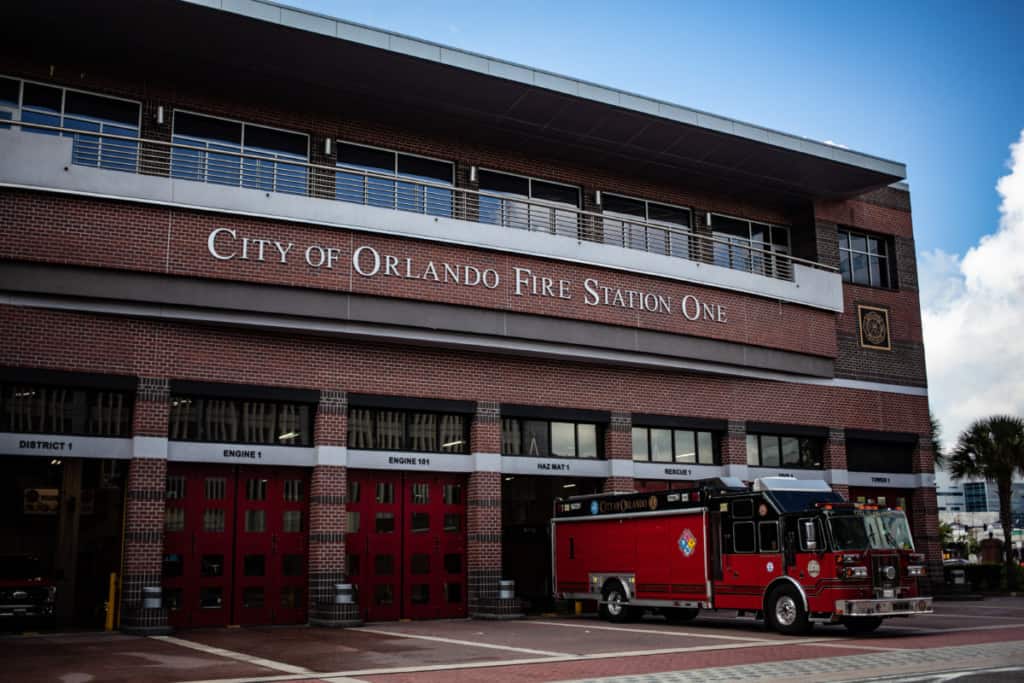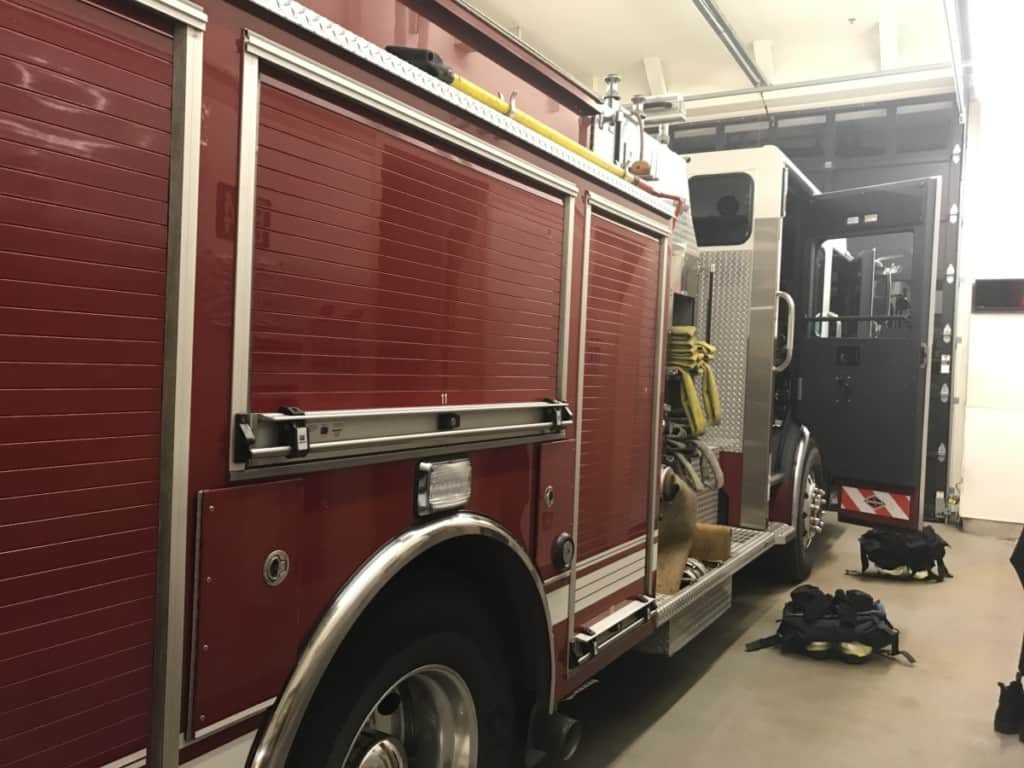Are you considering becoming a volunteer firefighter and wondering whether you might get a little financial compensation for doing so? Well, it’s not impossible to get paid as volunteer firefighter, but it’s not entirely straightforward either. Let’s take a look at why.
It’s not legal to give a volunteer firefighter a salary or hourly wage, but they can sometimes be compensated. They may be given a per call rate, or a monthly or annual stipend, though this cannot be linked to their performance on the job. They may also accrue benefits on the job such as a pension.
Being a volunteer firefighter usually means that you do it for the experience and to give back to your community, but you can sometimes be compensated. Here’s what you need to know.
Your # 1 priority is keeping your family safe. As a firefighter, I recommend everyone has updated smoke detectors that don’t require battery changes, like these ones from Kidde, a fire extinguisher, like this one from Amerex, and a fire escape ladder if you have bedrooms above the first floor, I recommend this one from Hausse.
Also read: How To Become A Volunteer Firefighter: A Guide
Do Volunteer Firefighters Get Paid?

This is a complicated area. In general, a good rule of thumb is “no, volunteer firefighters don’t get paid”.
This not necessarily because the departments don’t want to pay their volunteers, but because it’s a bit of a legal minefield thanks to the Fair Labor Standards Act (FLSA).
Lets take a look at these laws/rules:
What Are The Rules Around Volunteer Firefighter Pay? (Fair Labor Standards Act)
The FLSA says that anyone that is paid an hourly wage must be paid minimum wage and that if their hours go above a certain threshold – they must also be paid an overtime rate.
In essence, the FLSA sees hourly-paid workers as employees and not as volunteers.
Thus, there is no question that volunteer firefighters don’t get paid an hourly rate anywhere (at least in the US) and a similar problem could arise if volunteer firefighters were paid on a salaried basis, so they aren’t.
However, this doesn’t mean that a city or state is completely unable to make payments to a volunteer firefighter.
They can pay a volunteer a “nominal fee” (something which is not discussed in the legislation in-depth, but which is commonly taken to mean something small and not similar to an hourly or salaried rate). Many departments will pay a $2 fee per call out, for example.
This is basically intended to help cover the volunteer’s gas money, mind you, it’s not payment for their services.
The city or state may also, quite legally, give the firefighter a reimbursement of any expenses incurred on the job (you would need to check with an individual fire department on their rules regarding expenses) and they may also provide certain benefits.
It is worth noting that any fee paid by the city or state to a volunteer firefighter must not be linked to their productivity – because that would make the work “paid employment”.
This leaves some cities offering per call rates, some providing a monthly entitlement, and others an annual entitlement, and some paying nothing at all (probably the most common).
Don’t forget, volunteers customarily don’t get paid for the work they do in most places, that’s what “volunteering” is.
Should They Get Paid?
Some people in the fire service feel that volunteers ought to be compensated.
Particularly, if they find themselves volunteering for long periods of time. Such as volunteers that are roped in to fight wildfires which may need constant attention.
Others feel that volunteer firefighters should be happy with the reward of giving something back to their community and thus, any compensation they get and, in particular, the benefits provided should be seen as a “thank you” for the hard work that a volunteer provides.
This is a debate that’s likely to go back and forth and one where we don’t expect to see great changes in the immediate future.
Volunteers are volunteers and if you know what’s included when you sign up, then you probably won’t be disappointed when that’s what you get.
Do Volunteers Ever Get Benefits/Pensions?

Yes, while volunteers may not qualify for a salary, they do qualify for pensions and some other benefits.
And, in fact, some fire services are increasing the pension provisions for some of their volunteer firefighters.
This is because while the retirement age may be “65” for a pension, people are remaining increasingly active in their senior years and many are quite capable of working beyond the age of 65.
So, volunteer firefighters in places like Pendleton, New York can not just earn a pension before they retire, they may be able to boost their pensions after they officially retire too!
How Do Volunteers Pay the Bills?
Well, as you might expect, most volunteer firefighters aren’t full-time firefighters. If they were, they’d probably have become professional firefighters (who definitely do get paid). So, the majority of volunteers have other forms of paid employment.
Volunteer firefighters can come from all walks of life, they might be EMTs, they might be bankers, they might be actors (think Steve Buscemi at 9/11), they might be anyone at all.
What unites volunteer firefighters is a desire to give something back to the communities that they live in and serve.
Remember, over 70% of all firefighters in the US are volunteers.
What Does A Volunteer Firefighter Do?
Volunteer firefighters are people who give up their time to act as members of the fire service. They are fully trained firefighters though they may, sometimes, provide a more limited range of functions than a full-time professional firefighter does.
This will depend if the work for a volunteer only department or a combination department (volunteers and career firefighters working together).
Take a look at this video showing what being a volunteer firefighter is really like:
Volunteers may be responsible for:
- Fighting fires. As you’d expect they are expected to respond to and manage fire emergencies. In an all-volunteer department, they will be responsible for all the same tasks as a professional firefighter.
- EMS (Emergency Medical Services). Oddly, this is the bulk of firefighting work nowadays, and thus, volunteer firefighters will be expected to have basic first aid and CPR qualifications (in most areas). This is so they can provide basic life support to their patients.
- Traffic Incident Management. This is when firefighters are called out to a scene on a road that involves a major pile-up or some kind of fire or a massive wreck. They may need to free trapped victims, treat traumatic injuries, or manage traffic.
- Search and rescue. This won’t apply in all fire departments, but in many places, if an individual or group goes missing “out in the wild”, the fire department will join the search party and volunteers can help this party cover more ground in less time. They may also perform other types of specialty rescues.
- Repair and maintenance of vehicles. If the volunteer has the skills, they may be asked to help with keeping vehicles working and ready to spring into action when they are required to.
- Office work. Fire departments have a ton of paperwork that needs doing – reports are always needed to be written and filed. Volunteer firefighters will have to complete reports as well.
- Raising money. Fundraising is a huge part of any fire department’s duties and volunteers often lead efforts to bring in more funds from setting up fairs to organizing raffles. They may also be asked, assuming they have the experience, to get involved in grant writing.
Conclusion
You certainly shouldn’t expect to be making bank on the work of a volunteer firefighter – you won’t get a salary and you won’t get an hourly wage. You might, if your department allows for it, receive a small sum per call or on a monthly or annual basis and this will not reflect your performance on the job.
You can, however, accrue certain benefits and, in particular, a pension while you act as a volunteer firefighter, which can be a very pleasant bonus in your senior years. Yet, the biggest reward of working as a volunteer firefighter is the chance to give something back and to make a positive difference in the community that you are a part of. Firefighters are well-respected by the public and for good reason.
Related Articles:
Can You Have a Full-Time Job and Be a Volunteer Firefighter?
Volunteer vs Regular/Career Firefighter: What’s The Difference?

